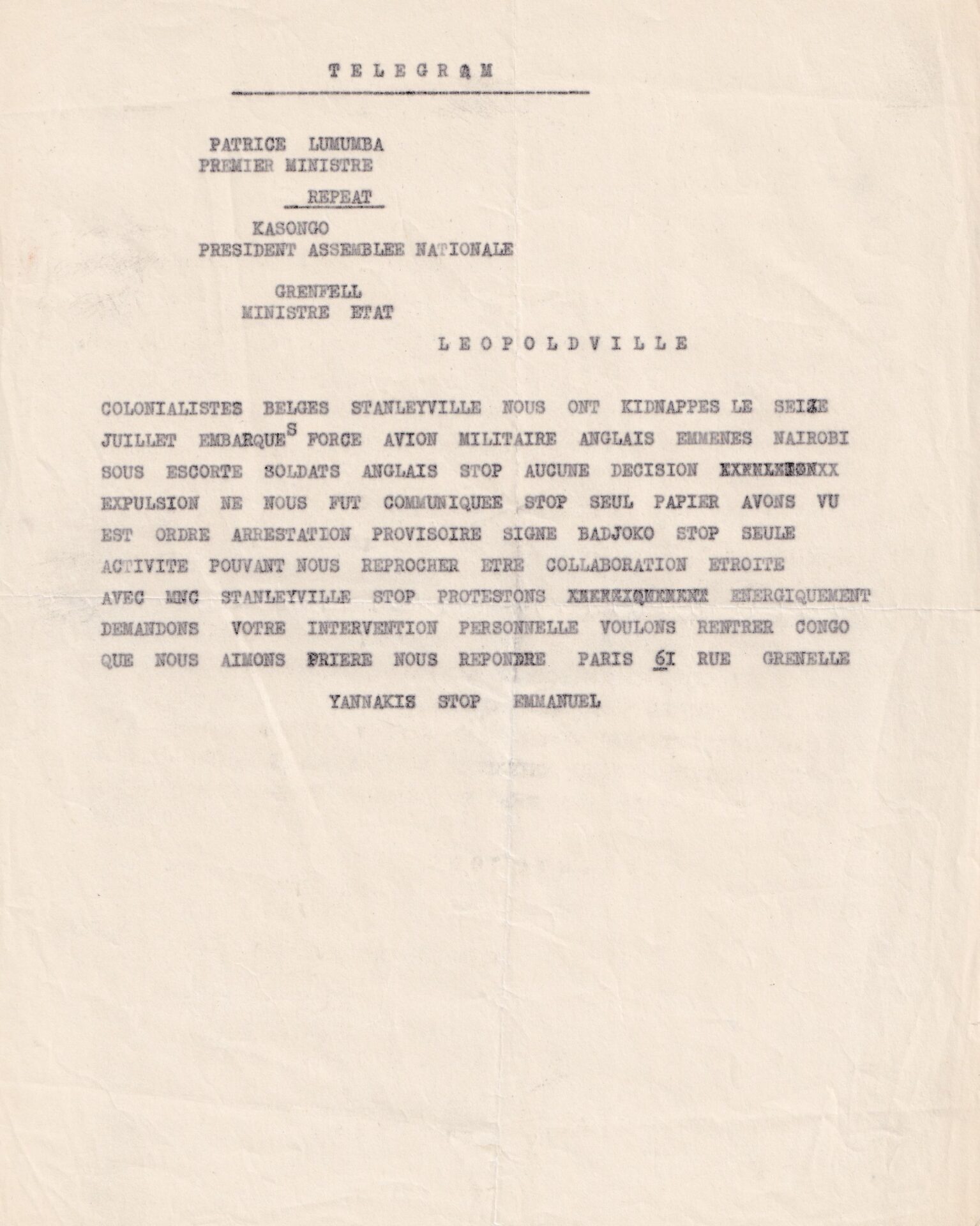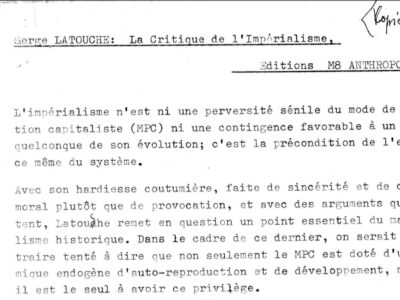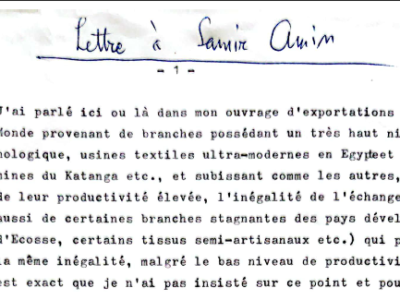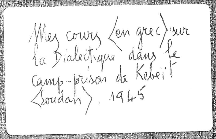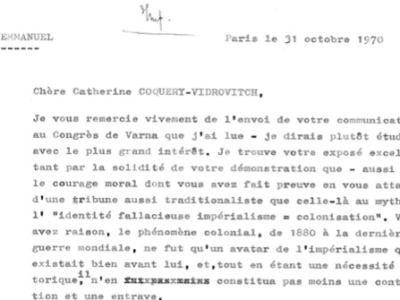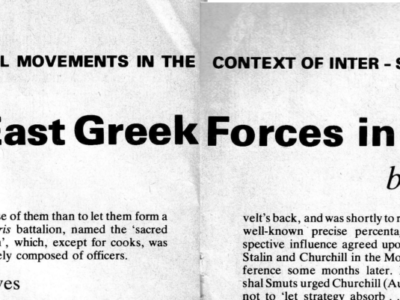The archival materials from Emmanuel’s collection, specifically the portfolio marked “Congo,” provide detailed documentation of the events during the summer of 1960 that led to his deportation from the Congo. These events were largely precipitated by his connections with Patrice Lumumba, the prominent Congolese leader. The documents, translated from French by Daniel Williams, shed light on the political circumstances surrounding this period.
Key dates during this tumultuous summer include:
- 22 May 1960: Lumumba’s party, the Congolese National Movement (Mouvement National Congolais, MNC), secured victory in the general elections.
- 24 June 1960: Lumumba assumed the role of Prime Minister in the newly established government.
- 30 June 1960: Formal celebrations of Congolese independence took place.
The first significant document, dated 6 July 1960, is a speech delivered by Emmanuel at the Hotel Stanley in Stanleyville, addressed to the Provincial President of the MNC. In this speech, Emmanuel publicly declared his support for Lumumba. Shortly thereafter, on 16 July 1960, an arrest order was issued for Emmanuel’s deportation. It is likely that his public endorsement of Lumumba contributed to this order. On the same day, Emmanuel was abducted and deported to Nairobi. Simultaneously, the Belgian government declared him a threat to public safety. These actions underscore the limited control Lumumba exercised over state institutions at the time.
The second document in this sequence is a telegram from Emmanuel to Lumumba, informing him of his arrest and deportation. However, this telegram never reached its intended recipient. Emmanuel subsequently followed up with a letter to Lumumba, dated 21 July 1960, which appears to be included in the Congo portfolio.
Lumumba’s response came much later, on 12 November 1960, when he requested Emmanuel’s return to the Congo (as evidenced in Lumumba’s letter, a scanned copy of which is available). Tragically, Lumumba was executed on 17 January 1961.
Despite Lumumba’s death, further correspondence from the Congolese central administration followed. Letters dated 11 February, 2 May, and 20 December 1961 invited Emmanuel to return to Congo (scans of these letters are also available). However, Emmanuel’s attempts to return were thwarted by the Congo embassy in Paris, which refused to grant him a visa, signaling divisions within the state administration.
Emmanuel’s engagement with Congo’s economic and political development continued, as evidenced by his paper, Arghiri Emmanuel’s 1961 Analysis of the Congo Crisis, written on 27 July 1961. This paper offers a detailed analysis of the Congo’s economy at the time of independence, the role of European settlers, and provides recommendations for the Free Republic of Congo, led by Antoine Gizenga after Lumumba’s death.
In 1962, Emmanuel began his studies in political economy in Paris. However, he maintained his interest in Africa and continued his efforts to return to Congo. One such attempt is documented in a letter from Emmanuel to President Mobutu, dated 23 November 1967, in which he requested permission to return to Congo. Emmanuel did eventually manage to return on several occasions, as suggested by his letter to Immanuel Wallerstein, dated 13 June 1972.
Torkil Lauesen, 17th of September 2024
Documents were translated by Daniel Williams
Originals in French:
Emmanuels Speach 6. July 1960_20240911_0001